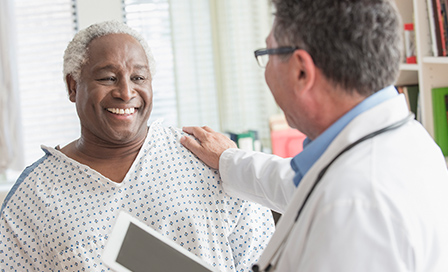

Carle Digestive Health physicians are involved in many ongoing clinical research studies and clinical trials for Inflammatory Bowel Disease (IBD), including Crohn's Disease and Ulcerative Colitis.
Our skilled physicians are invested in this research to further understand these chronic, sometimes debilitating gastrointestinal (GI) diseases and conditions. To learn more about digestive health research, visit our list of clinical trials or call (844) 37-RESEARCH (844-377-3732) or email us.
Gastroenterology, Digestive Health
Please Contact Us if you have any questions.